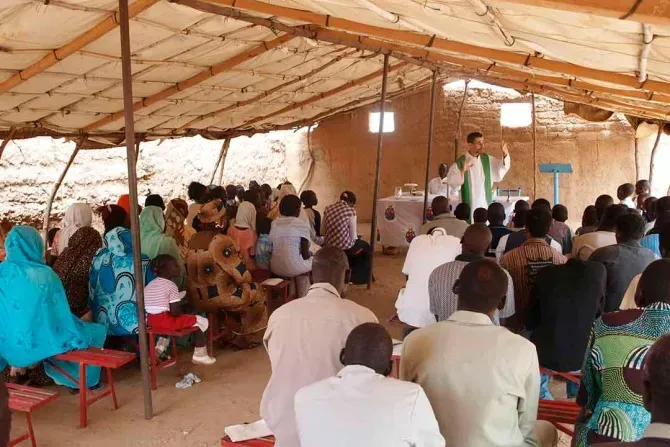ACI Prensa Staff, 14 April, 2024 / 8:30 pm (ACI Africa).
The third Sudanese civil war has terribly affected the entire country but especially the local Catholic Church, which — according to the pontifical foundation Aid to the Church in Need (ACN) — has no seminarians and has practically disappeared from the country.
Since April 15, 2023, armed clashes have broken out in Sudan between the Army, commanded by President Abdel Fattah al-Burhan, and the Rapid Support Forces (RSF), a paramilitary group led by Mohammed “Hemedti” Hamdan Dagalo, the vice president of the country.
Both sides jointly deposed the transitional regime, established after the overthrow of dictator Omar al-Bashir in 2019. Once their objective was achieved, the Sudanese Army and the RSF clashed for control of the country’s wealth, especially for the gold and oil.
Hamdan owns several gold mines in the country’s north. In 2022, according to official figures, Sudan exported nearly $2.5 billion in gold (41.8 tons), making it the third-largest producer of this precious metal in Africa.
The army side of the conflict controls real estate and companies of all kinds, which they refuse to hand over to a civilian government that doesn’t align with their interests.








